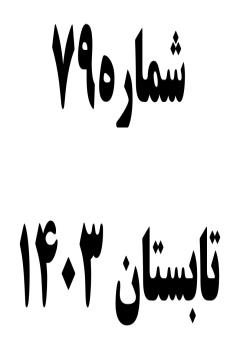»Problem solving«, a method in education or an end for ethics?
Subject Areas : Educational Science
Elaheh Abdollahi
1
,
Ali Moradkhani
2
*
,
Fatemeh Ahmadbeigi
3
![]()
1 - Ph.D. student of Philosophy, Department of Philosophy, North Tehran Branch, Islamic Azad University, Tehran, Iran
2 - Associate Professor, Department of Philosophy, North Tehran Branch, Islamic Azad University, Tehran, Iran
3 - Education humanity North Tehran Branch Islamic Azad University Tehran Iran
Keywords: problem solving, education, moral education, thinking, John Dewey,
Abstract :
The purpose of this article is to examine John Dewey's views on "education" and "ethics" and his efforts to apply these two categories in solving society's problems. Dewey introduces "problem solving" as a practical method in education and believes that this method plays an effective role in achieving social goals. Although Dewey does not explicitly mention the "problem solving" method in his moral philosophy, he seems to be trying to present a similar method in this area, especially moral education. In order to achieve this goal, he pushes fixed moral principles to the sidelines and makes moral judgment dependent on the evaluation of each situation and its unique characteristics. Dewey believes that the presentation of ethics lessons by educators and the learning of ethical principles by students does not lead to any results, and the prerequisites for the effectiveness of ethics should be provided in the field of "action". The main issue in this article is how Dewey tries to present a method such as "problem solving" in the field of ethics and moral education, a method that is used to solve a complex situation in which a person is caught. The results of this research show that Dewey, as one of the pioneers of pragmatism and instrumentalism, considering ethics as a "science", considers moral principles as "hypotheses" that need to be re-evaluated to be used in a new situation. Therefore, moral education depends on "rational inquiry", "thinking", "research" and "experience", elements that evoke "problem solving" in Dewey's philosophy of education.
- دیویی، جان (1325). آموزشگاههای فردا، ترجمه امیرحسین آریان پور، تهران: اقبال.
_______(1339). اخلاق و شخصیت، ترجمه مشفق همدانی، تهران: صفی علیشاه.
_______ (1337). بنياد نو در فلسفه، جان ديويي، صالح ابوسعيدي، تهران: اقبال.
_______(1341). دموکراسی و آموزش و پرورش، ترجمه امیرحسین آریان پور، تهران: فرانکلین.
- قاسمی، اعظم، آیتاللهی حمیدرضا (1386). بررسی انتقادی دیدگاههای اخلاقی جان دیویی. فصلنامه اخلاق
در علوم و فناوری، شماره 1 و2، سال دوم، تهران 41-30
- قاسمی، اعظم (1395). فلسفه اخلاق جان دیویی، تهران: پژوهشگاه علوم انسانی و مطالعات فرهنگی (کتاب الکترونیکی).
- هولمز، رابرت (1385). مبانی فلسفه اخلاق، ترجمه مسعود علیا، تهران: ققنوس (کتاب الکترونیکی).
- Anderson, Josh (2014). The imperative of critical thinking in Dewey's world view. Chicago: The university of Chicago press.
- Bacon, Michael (2012). pragmatism, Cambridge: Polity press.
- Carden, Stephene (2006). Virtue ethics: Dewey and Macintyre, New York, Continuum International Publishing Group.
- Dewey, John (2001). Democracy and education, Pennsylvania: A Penn state electronic classics series publication.
- ______ (1930). Human nature and conduct. New York: Modern library.
- ______ (1938). Logic-the theory of inquiry. New York: (printed in the United States of America) Henry Holt and company.
- ______ (1909). Moral principles in education, Wildside press LLC.
- ______ (2004). Reconstruction in philosophy, Dover: Dover publications.
- ______ (2008). The later works 1925-1953, volum7:1932, edited by Jo Ann Boydston, USA: Southern Illinois university.
- Fesmire, Steven (2003). John Dewey moral imagination: pragmatism in ethics. Indiana: Indiana university press.
- Pappas, Gregory Fernando (2008). John Dewey’s ethics democracy as experience. Bloomington and Indianapolis: Indiana university press.
- Putnam, Hilary (2017). pragmatism as a way of life: the lasting legacy of William James and John Dewey, Cambridge, Massachusetts: The Belknap press of Harvard university.
- S. Katz Michael, Verducci Susan, Biesta Gert (2008). Education, Democracy, and The moral life, New York: Springer.
- Wilcock, Neil. (2021). Rousseau, Dewey, and Freire A political and educational method, United States of America: Metaphilosophy LLC and John Wiley & sons Ltd, vol. 52. NO2.

